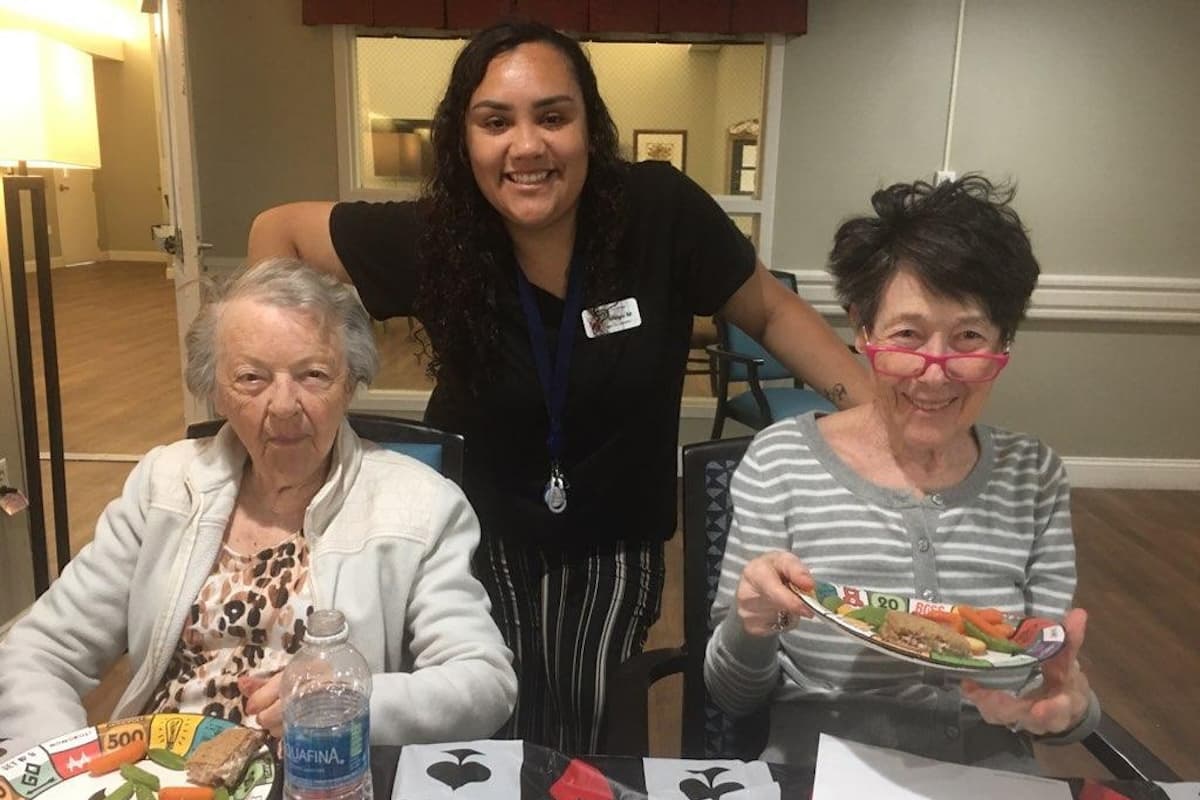Caring for a loved one with memory loss can be challenging for many reasons. For example, people with dementia often show behaviors that are hard for family members to manage comfortably. Not knowing how to communicate with someone with changing needs can also be unsettling.

As stages of dementia progress, a person’s personality may transform over time. Unexpected behaviors may include:
- Wandering
- Sundowning
- Insomnia
- Repetition
- Suspicion
- Confusion
- Anxiety
- Aggression
- Obsession
This guide aims to help you understand and manage these dementia behaviors more effectively.
Recognizing Dementia and Its Behaviors
Dementia is not a single condition. It’s an overall term that describes a wide range of symptoms related to a decline in memory or other thinking skills. These become severe enough to reduce a person’s ability to perform everyday activities.
At its core, dementia is a health problem that affects the brain. It leads to memory loss and changes in how a person thinks, feels, and behaves. These changes often lead to different behaviors, especially as dementia progresses through its stages.
Alzheimer’s is Just One Type of Dementia
While Alzheimer’s is the most well-known and common form of dementia, it’s important to understand that it’s only one type.
Alzheimer’s is characterized by the build-up of two proteins called amyloid and tau in the brain. These proteins disrupt the normal function of brain cells, leading to memory loss, confusion, and difficulty with language and problem-solving.
Other Types of Dementia
Vascular Dementia
The second most common type of dementia, vascular dementia, occurs due to reduced blood flow to the brain. People with vascular dementia may experience problems with planning, reasoning, memory, and other thought processes.
Lewy Body Dementia
Lewy body dementia (LBD) is characterized by abnormal deposits of a protein called alpha-synuclein in the brain. Individuals with LBD may experience visual hallucinations, sleep disturbances, and Parkinsonian motor symptoms, like slow movement and tremors.
Frontotemporal Dementia
Unlike other dementias, frontotemporal dementia (FTD) generally affects personality, behavior, and language first. It is associated with shrinkage of the brain’s frontal and temporal anterior lobes. Signs may include significant changes in social and emotional behavior, apathy, and language difficulties.
Mixed Dementia
This form of memory loss refers to a diagnosis of two or three types of dementia at the same time. For instance, someone might have both Alzheimer’s disease and vascular dementia simultaneously.
Navigating the Challenges Of Dementia With Changing Behaviors
Caring for a loved one with dementia is a journey marked by love, patience, and, sometimes, inevitable challenges. Wandering, suspicion, confusion, and moments of anxiety or aggression stand out as particularly distressing behaviors for the person with dementia and family caregivers.
Understanding and managing dementia and behavioral disturbances with compassion and informed strategies can significantly improve the quality of life for everyone involved.
Managing Wandering in Dementia
Individuals with dementia can tend to wander when not closely supervised. That can be distressing for caregivers and dangerous for the person with dementia.
The urge to wander can stem from various factors, including:
- Confusion
- Boredom
- Need to fulfill a forgotten purpose
Strategies to manage wandering include:
- Creating a secure environment and protected outdoor space
- Using simple cues to redirect behavior
- Meeting the person’s basic needs
- Provide engaging activities
Recognizing triggers and employing preventative measures helps manage this behavior while respecting the individual’s autonomy and need for movement.
Handling Suspicion and Confusion
Suspicion and confusion can upset the caregiver and the person with dementia. If your loved one becomes suspicious or confused, stay calm. Arguing can make things worse.
These feelings may arise from the person’s struggle to make sense of the world around them. Responding with reassurance and empathy is crucial when faced with suspicion or confusion.
Avoid trying to correct their feelings; offer comfort and redirect their attention to familiar activities or topics. Establishing a routine can also reduce confusion and provide a sense of stability and security.
Reducing Anxiety and Aggression
Anxiety and aggression in dementia can be manifestations of fear, frustration, or unmet needs. These intense emotions can be overwhelming and may be caused by:
- Physical discomfort or undiagnosed illness
- Environmental factors like noise, new environments, new people, or distractions
- Emotional distress
- Side effects of medication
- Fatigue
It’s vital to approach these situations with calmness and understanding. Identifying and addressing the root cause of the anxiety or aggression can help alleviate these responses.
Peaceful environments help reduce anxiety. We recommend avoiding loud noises and crowded places. When aggression occurs, give the person space and try to identify what might be triggering their distress.
If knocking on the door before entering their room triggers their anxiety or aggression, consider another way to announce your presence. Instead of a knock that might startle or confuse them, speak softly through the door, letting them know who you are and why you’re there before entering. That can be less alarming and provide a sense of continuity and reassurance.
“Hi, Mom, it’s me, your child. I’m coming in to spend some time with you, okay?”
That approach respects their need for predictability and minimizes potential distress.
Dementia and Obsessive Behavior
Dementia and obsessive behavior manifest in various forms, like the relentless repetition of questions or a rigid insistence on certain routines and rituals.
This tendency is notably pronounced in Alzheimer’s, where individuals may repeatedly ask the same question. It’s often due to short-term memory loss and impaired ability to retain new information.
Individuals with FTD might exhibit repetitive physical actions like humming, hand-rubbing, and foot tapping. They may also adhere to strict routines, such as walking the same route repeatedly.
Obsessive thinking in dementia and repetitive behaviors serve multiple purposes. What caregivers see as a disturbance could be the person trying to:
- Express specific concerns
- Seek assistance
- Cope with feelings of frustration, anxiety, or insecurity
Patience is key here. Try to provide reassurance and maintain a calm environment. Sometimes, gently changing the subject or engaging in a different activity helps.
Support for Caregivers
Caring for someone with dementia behaviors can be detrimental to one’s mental health. It’s essential to seek support.
Joining support groups in memory care communities can connect you with others who understand what you’re going through. These groups offer practical advice and emotional support to help you manage the stresses of caregiving.
The evidence-based Connections memory care program is available at The Village at Rancho Solano in Fairfield, CA. Our team members understand the signs of dementia with behaviors that can change at any moment. We provide specialized care for loved ones at various stages of memory loss.
Discover Professional Care to Manage Dementia Behaviors
Discover how The Village at Rancho Solano transforms lives. Our memory care offers compassion, innovation, and a sense of community to reduce behavior disturbances. Contact us and see the difference in care and happiness.
*The information provided in this blog is for general informational and educational purposes only. It is not intended as medical advice, diagnosis, or treatment recommendation for any individual or specific condition. Dementia and related behaviors can vary significantly among individuals; therefore, personal medical decisions should always be made in consultation with a qualified healthcare provider. The experiences and strategies discussed may not be suitable or effective for all individuals or situations. Readers are encouraged to seek professional advice and support for managing dementia and its symptoms.
